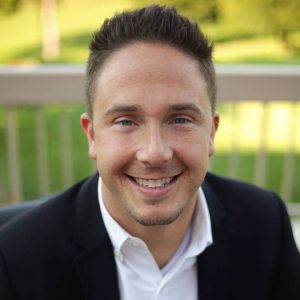Sep 10 2018
Cookie Snack Story
The experience with this assignment was unique because carrying a box of cookies to classes every day for three days was stressful with a backpack full of school work. It was hard at first to make the cookies go away but the next two days made it easy for the cookies to go away.
On day one, it was challenging to try to get someone to take one bag of cookies. Luckily, the activities fair was on the same day as this story first started. I took the box and open it up and set it in front of the Mass Communications table in the fair.
Nobody took a bag except when the fair was over. There was a lady at the table to the right of me that looked at my cookie box. Another classmate, Mari Pizzini, also brought her box of cookies to the activities fair. They were Scooby Snacks.
She asked, “What kind of cookies do you have?”
I said, “Fudge Stripes.”
“Can I have a bag?”
“Sure you can.”
I tossed the bag of cookies to her, and she said, “Thank you so much.”
“You’re welcome.”
On the next day, my progress of making the box of cookies empty was much better than the day before. Five bags of cookies less to have with me. I gave out two bags of cookies to Katy Hackworth and Nathan Hoogland. It was an awkward but funny experience. We laughed as gave them cookies.
Quickly after that, I asked Jenny Mansfield if she wanted a bag of cookies. She said yes and gave her a bag of cookies. Soon after, Jonathan Covert realized that I was giving out cookies and asked for bag himself. I said yes and gave him a bag of cookies. Katy, Nathan, and Jonathan all went to their class afterward.
I took my box of cookies onto the second floor of the library. Set them in front of my computer so when people walk by; they can see the cookies. Nobody took a bag of cookies for a while, and so made a sign that said: “FREE Yummy Cookies” to put in front of the box.
After a while, Steph Davis noticed the sign and was confused. I told her that it was for an assignment for class and she repeated what I said.
She says in a loud voice, “THANK YOU!!” and takes a bag for herself.
On day three, my progress was even better than yesterday. I gave out six bags of cookies. Kaitlyn Polk, who was leaving campus that day, before my class start. Morgan P., who was confused about why I was giving out cookies and was skeptical about the whole thing. Katie McClintock, who asked why I was giving out cookies and explained why she was seeing people giving out cookies.
The last three bags of cookies were giving out before the J.D. Scholten rally. They noticed the sign on the box and asked if there were cookies inside and said yes. They didn’t believe me, so I opened up the box to show that there are cookies inside.
They asked if they can have them and I said yes. I tossed the bags to them, and they said, “Thank you.”
I said, “You’re welcome.”
Finally, all twelve bags of cookies were gone. The struggle of carrying a box of cookies and trying to make them go away was gone.


